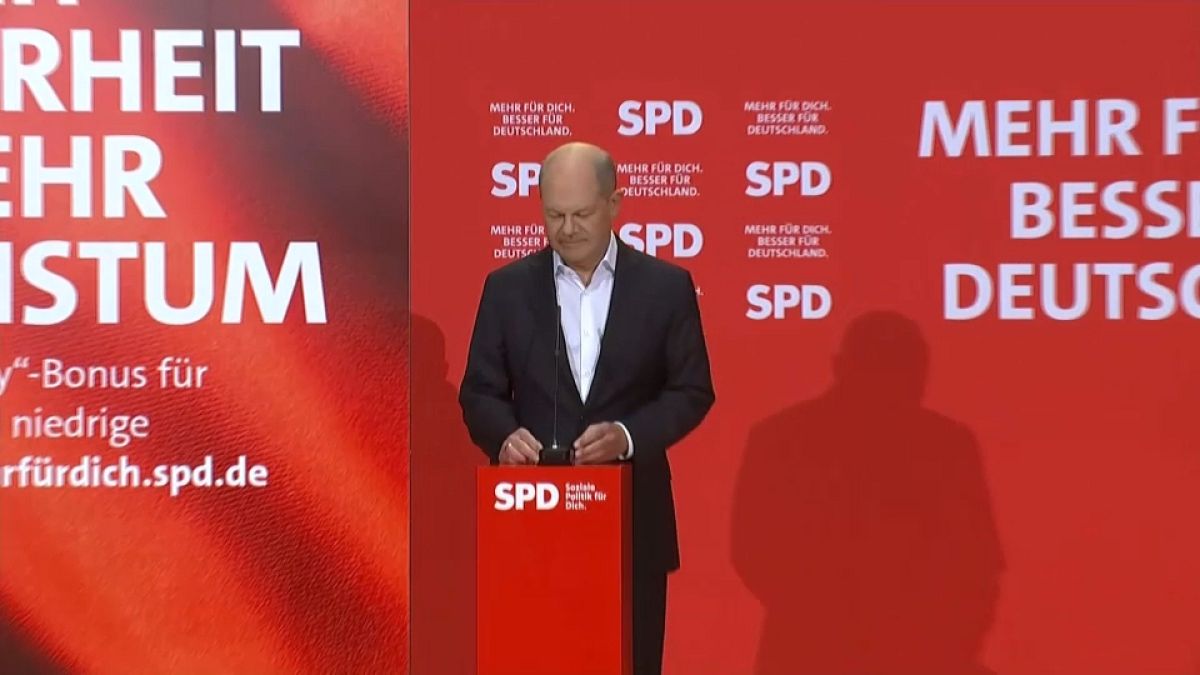German Chancellor Olaf Scholz recently condemned Elon Musk’s endorsement of Germany’s far-right Alternative for Germany (AfD) party ahead of the country’s upcoming elections. Musk, who owns the social media platform X, has publicly supported AfD, claiming that “only the AfD can save Germany” in a recent post. This has raised concerns among German government officials who have accused Musk of election interference, as his comments coincide with the general election scheduled for February 23.
Scholz, who previously ignored Musk’s personal attacks, expressed worry about the tech mogul getting involved in German politics. The chancellor described Musk’s support for a far-right extremist party as unacceptable, stating that his party, the SDP, had to defend themselves against “rich entrepreneurs” in the past. Scholz also highlighted the new challenge posed by global media entrepreneurs like Musk who use algorithms to shape public opinion. Despite reports claiming otherwise, Scholz denied any plans of a meeting with Russian President Putin, labeling such claims as false and deeply indecent.
The controversy surrounding Elon Musk’s endorsement of AfD has sparked a debate on the role of wealthy individuals in politics and the influence of social media platforms on elections. Musk’s actions have raised concerns about the use of algorithms to manipulate public opinion and the potential impact on democratic processes. By openly supporting a far-right party, Musk has faced criticism from German officials who view his actions as an attempt to interfere in the country’s democratic process.
In response to the accusations of election interference, Musk has defended his endorsement of AfD, arguing that he has a right to express his political views on his platform. However, critics have questioned the ethics of using a popular social media platform to promote extremist ideologies and influence voters. The controversy highlights the challenges of regulating online platforms and preventing the spread of misinformation and hate speech in the digital age.
As Germany prepares for its general elections, the role of social media influencers and tech moguls in shaping public opinion has come under scrutiny. The controversy surrounding Elon Musk’s endorsement of AfD has reignited concerns about foreign interference in elections and the need for transparency in political advertising. German officials have called for greater regulation of social media platforms to prevent external actors from manipulating public discourse and influencing electoral outcomes.
In conclusion, Elon Musk’s endorsement of Germany’s far-right AfD party has sparked a debate on the influence of wealthy individuals in politics and the role of social media platforms in shaping public opinion. The controversy has raised concerns about election interference and the use of algorithms to manipulate voters. As Germany approaches its general elections, the issue of regulating online platforms and combating extremism online remains a key challenge for policymakers. The actions of individuals like Musk highlight the need for greater transparency and oversight in the digital sphere to protect the integrity of democratic processes.


























